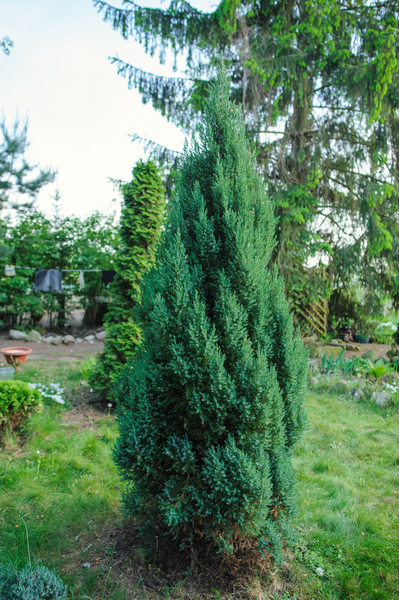Thuja

Thuja as a homeopathic remedy
Thuja is used in homeopathy as a remedy for various complaints that are often related to a weakness of the immune system. These include, for example, warts, skin rashes, eczema, ulcers, tumors, vaccination reactions or chronic infections. Thuja is said to strengthen the body's own defenses and stimulate self-healing powers. The dosage and use of thuja depends on the individual case and should always be discussed with a vet or veterinary practitioner. Thuja is usually administered in the form of globules or drops, which can be given directly into the mouth or mixed into the food.
Thuja as an external application
Thuja can also be used externally, for example as an ointment, oil or tincture. These can help with skin problems such as warts, eczema, fungal infections or wounds by disinfecting, soothing and healing the affected areas. Here too, the use of thuja should always be discussed with a specialist, as side effects or intolerances may occur. Care should also be taken to ensure that the dog does not lick or scratch the treated areas.
The risks of Thuja
Thuja is not suitable for every dog and can do more harm than good if dosed or used incorrectly. Thuja is toxic in high doses and can lead to symptoms of poisoning such as vomiting, diarrhea, convulsions or breathing difficulties. Allergic reactions are also possible, which can manifest as itching, swelling or breathing difficulties. Thuja should therefore only ever be used under the supervision of a vet or veterinary practitioner and should never be increased or prolonged without consultation. In addition, Thuja should not be combined with other medications, as this can lead to interactions.
Thuja is a medicinal plant with many potential benefits for dogs suffering from certain ailments. However, Thuja is not a miracle cure and should always be used with caution and responsibility. This is the only way to ensure that Thuja helps and does not harm the dog.
If you notice any signs of hypersensitivity or poisoning in your dog, you should see your vet immediately. We are not a substitute for a vet, but we try to be as accurate as possible. Every dog reacts differently and we recommend you get a second opinion or consult your vet if in doubt.
Stay healthy and take good care of your four-legged friend!😊